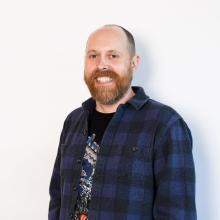Abstract
In recent times and as technology keeps evolving, the boundary between software engineering and DevOps continues to blur, presenting unique challenges and opportunities for software engineers. In this session, I'll share my journey from backend software engineering into the realm of DevOps, exploring how Pulumi became the pivotal tool that empowered my transition. We'll delve into the technical intricacies of leveraging Python for crafting Infrastructure as Code (IaC) and examine how it opens doors for teams with strong software backgrounds, yet limited DevOps experience.
As software-savvy engineers, we're well-versed in the art of coding. However, the leap into DevOps might seem like a foreign landscape. I discovered Pulumi – a bridge that connects our coding expertise with the world of infrastructure orchestration. With Pulumi, modern programming languages become our conduit to crafting, deploying, and managing infrastructure, relieving us from the tangles of YAML and JSON configurations.
This talk isn't a showcase; it's an exploration. We'll dissect how Pulumi aligns seamlessly with programming languages like Python to offer a familiar landscape for engineers stepping into the realm of IaC. Discover how it empowers teams to tap into their existing software skills, easing the transition while leveraging their coding prowess to architect robust infrastructure setups.
So, if you're a senior engineer with coding know-how and an itch to delve into DevOps, this session is your gateway. Join me as I tell my story of how Pulumi made me a Infrastructure Engineer, we uncover the technical synergy of Python and Pulumi, and I also talk about how it ushers in a new era of Infrastructure as Code, beyond the confines of YAML and JSON.
Interview:
What's the focus of your work these days?
I'm currently working in the domain of Cloud and Infrastructure Engineering, helping developers to build great products on the cloud.
What's the motivation for your talk at QCon San Francisco 2023?
As a software engineer, I got into Infra through Pulumi and it's been a great experience for me. I'd love to share my experience with others and show them how to use their transferable skills to build resilient infrastructure.
How would you describe your main persona and target audience for this session?
I'd describe the persona of the target audience as Senior Engineers interested in DevOps and Cloud Engineering.
Is there anything specific that you'd like people to walk away with after watching your session?
I'd want them to leave understanding how Pulumi can help them create infrastructure in a more familiar way. I'd want them to want to try Pulumi for themselves because I'm certain they'd love it too.
Speaker

Adora Nwodo
Community Engineer
Adora Nwodo is a multi-award winning Senior Software Engineer. She currently works at the intersection of the Metaverse, Cloud Engineering, and Artificial Intelligence and is passionate about the Cloud and Emerging Technologies. She is also the Vice President of the Nigerian chapter for VRAR Association. Her work there involves creating more awareness for Virtual and Augmented Reality Technologies.
Apart from building and advocating for mixed reality technologies, Adora is a Digital Creator and the Founder of NexaScale, a social enterprise aimed at fostering the growth and development of technology enthusiasts by providing resources and opportunities for project building and work experience - helping them start and scale their careers. She has courses online that teaches people about Infrastructure automation, she has also published multiple articles on Software Engineering, Productivity & Career Growth on her blog, AdoraHack. She also has a YouTube channel for AdoraHack where she posts tech content that could be useful to Software Developers. Currently, Adora is a student of LEAD in the Stanford University Graduate School of Business.
Adora is the Author of the popular book "Cloud Engineering for Beginners". This book is currently helping a lot of people start their career as Cloud Engineers. She is also the author of “Beginning Azure DevOps, ” a book published by Wiley.
Adora spends a lot of her time on Twitter and LinkedIn sharing about her experience as a woman in tech. She is extremely passionate about the developer community and is trying to drive inclusion for women in technology. She co-organizes community events for unStack Africa, contributes to Open Source, and speaks at technology conferences worldwide.
Find Adora Nwodo at:
Speaker

Adora Nwodo
Community Engineer








